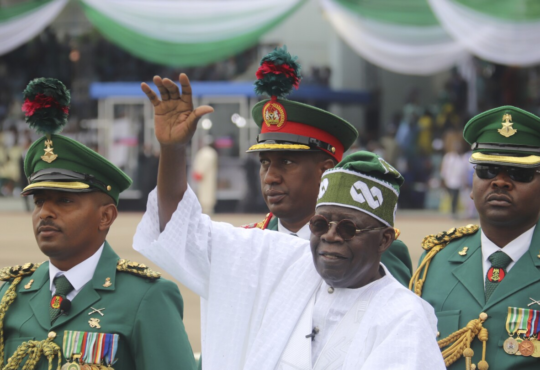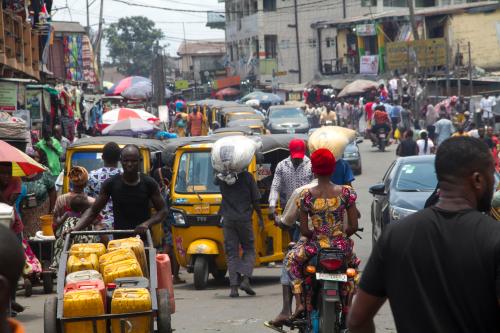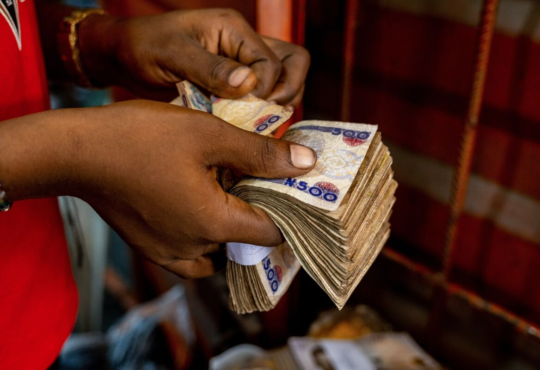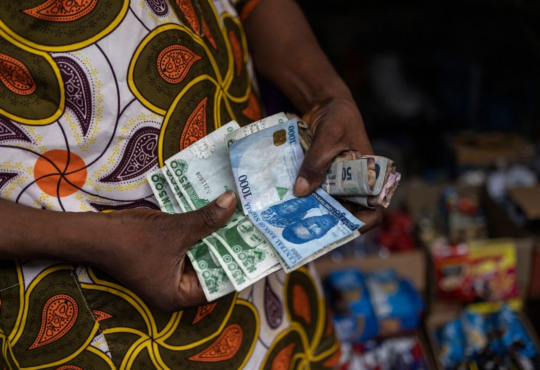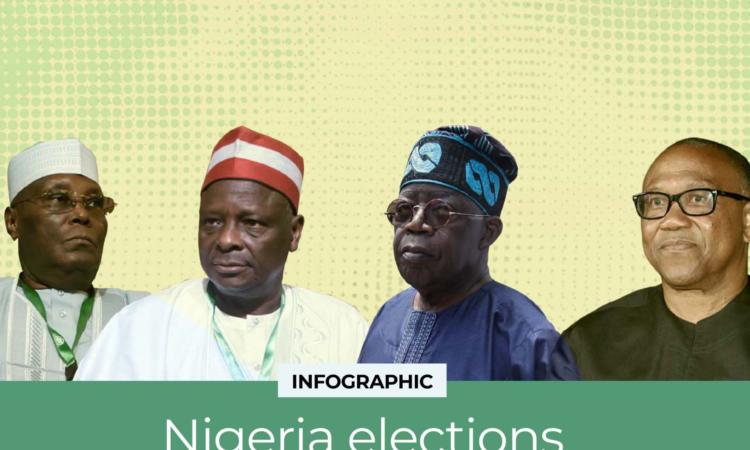
There are 93.4 million eligible voters for February 25 polls, the sixth since Nigeria’s return to democracy in 1999.
Lagos and Abuja, Nigeria – On February 25, Nigerians will go to the polls to elect President Muhammadu Buhari’s replacement as he is serving out the second of his constitutionally permitted two four-year terms.
Eighteen candidates are jostling to succeed him as leader of Africa’s biggest economy.
Top contenders include Bola Tinubu, a two-term former governor of Lagos and a major stalwart of the ruling All Progressives Congress (APC) party as well as the Peoples Democratic Party’s (PDP) Atiku Abubakar, a former vice president who is gunning for the position a record sixth time.
Also in the race are the Labour Party’s (LP) Peter Obi, a two-time former governor of Anambra, and Rabiu Kwankwaso, ex-defence minister and former governor of the northern hub Kano, on the ticket of the New Nigeria People’s Party (NNPP).
Atiku Abubakar
The PDP remains Nigeria’s key opposition and Abubakar, a veteran who is on his sixth attempt to be president, is hoping to clinch the presidency and return the party, which was at the helm of affairs from 1999 to 2015, to power.
He has hinged his campaign on unifying what remains a divided country and lifting Nigeria’s economy, which has suffered two recessions in four years, out of the doldrums.
In Nigeria, which is split almost evenly between Christians and Muslims, there is a gentlemanly agreement between the main parties to share power between north and south, and Christians and Muslims. The outgoing Buhari is a northern Muslim.
Abubakar, like Buhari, is a northern Muslim – and ethnic Fulani – from the northeast. He has selected Ifeanyi Okowa, the outgoing governor of Delta State in the south and Christian, as his running mate.
Bola Tinubu
Tinubu and Atiku, former political and business associates, were among the founding fathers of the APC but square up on Saturday on different sides, with each hoping to pull one over the other.
The former, a two-term governor of Lagos, Nigeria’s economic capital, is credited with raising the state’s revenue, and supporters say he will replicate his success on the national stage.
He has courted controversy by doing what was considered unthinkable for more than three decades, selecting Kashim Shettima, ex-governor of Borno, as his running mate. Tinubu and Shettima are both Muslims, from the southwest and northeast, respectively.
Ahead of Saturday’s vote, they have argued that competency overrules religion.
Peter Obi
The former governor of the southeastern state of Anambra, whose emergence and strong showing so far has effectively disrupted the traditional two-horse race, is also being projected as a surprise winner of the vote.
Multiple polls have predicted a win for the Labour Party and Obi, who has a large following among Nigerian youths who are disenchanted with governance in Africa’s largest economy. He was on the PDP ticket alongside Abubakar in 2019.
Obi, a wealthy capitalist famed for his frugality and overseeing an infrastructure drive during his time as governor is running with Yusuf Datti Baba-Ahmed, a former senator from the northwestern state of Kaduna.
Rabiu Kwankwaso
Seen as a wildcard in the race, Kwankwaso comes with enough experience to match the other frontrunners. A former two-time governor of Kano and defence minister, he has served in the two houses of parliament.
He is immensely popular among the youth in his home region for his welfarist politics. One big achievement was a significant scholarship scheme that benefitted thousands of students from low-income households in Kano, previously known for its high numbers of the almajirai, out-of-school child beggars.
Kwankwaso is running alongside Isaac Idahosa, a bishop in the Pentecostal Christian denomination, who hails from Edo State in the south.
Buhari came to power promising to fix the economy, as well as tackling corruption and insecurity. But his presidency has been so underwhelming that even Tinubu, the APC’s national leader, has repeatedly dissociated himself from the failings of the government.
The economy has endured two recessions in the last five years, and the naira has plummeted to one-third of its value in that time. There is also insecurity, especially in the northeast, northwest and southeast, where multiple armed groups hold grievances against the state and continue to conduct frequent rounds of killings and kidnappings.
The current campaign period has focused on these same issues.
In addition to insecurity in parts of the country, there have been attacks on a number of state offices of the Independent National Electoral Commission (INEC).
While there is a long-running pattern of violence around Nigeria’s usually keenly contested elections, experts say the new wave comes with precision and sophistication.
However, INEC has said it is not considering postponing the elections.
The election cycle includes elections for governorships and members of parliament at the federal and state levels.
The governing party enjoys a wide-margin majority in the legislature.
The upcoming vote will have more technology features in the electoral process than in previous elections.
Here is how voting will happen:
In parts of Africa, personality-driven politics and patronage culture are still dominant, so ideology politics is not as entrenched on the continent as it was under military regimes.
Political actors are frequently crossing party divides and changing their stance on national issues depending on the stage of their career and other variables in an electoral cycle.
Below is an approximate representation of their ideological standing – economically and culturally.
The results of the elections are usually announced within three to five days after the elections.
Follow Al Jazeera English:


